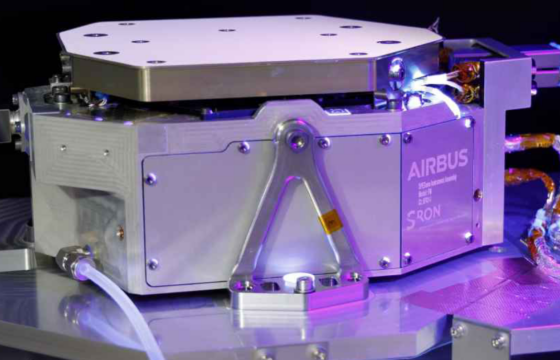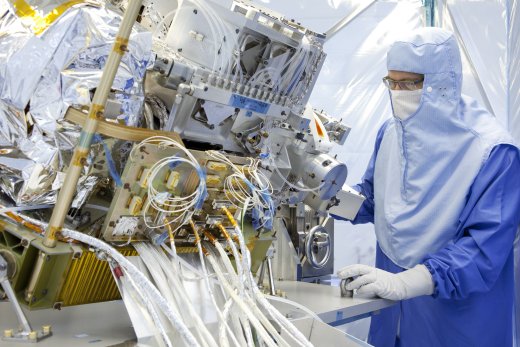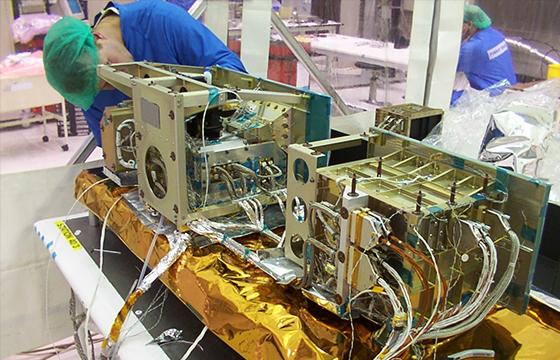Instruments
Monitoring greenhouse gas emissions from space is crucial for better understanding air pollution and climate change. With the Noctua line of instruments, this is within reach.
Grip on emissions
Man-made emissions have a major impact on life on Earth. They influence our climate, our health and endanger biodiversity. This makes it of paramount importance to get a grip on these emissions. For that purpose three simple questions form the focus:
- Who is emitting what?
- Which emissions should be reduced?
- And, are we successful in reducing these emissions?
Satellites make an important contribution to monitoring emissions by providing measurements – continuously and globally – that can be compared with each other.
Measuring at source level from space
The knowledge and experience that Airbus Netherlands has gained over the past decades in the design, construction and testing of complex space instruments has been further developed into a series of compact, high-end instruments for emission monitoring. We do this together with our renowned Dutch knowledge partners SRON, KNMI and TNO. Small instruments, suitable for small satellites, that measure at source level starting with aerosol, carbon dioxide, methane and nitrogen dioxide.
With the Noctua series Airbus Netherlands makes independent and reliable measurements of global emissions (and concentrations) easily accessible and affordable. The Noctua instruments enable governments and companies to make emissions manageable and to take targeted actions in line with climate objectives.
Strong heritage
We are recognised for successfully monitoring emissions from space, which is the result of thirty years of atmospheric research in the Netherlands. Together with our national and international partners we have built Earth observation spectrometers Sciamachy, OMI, Tropomi and SPEXone; instruments that define the image of global atmospheric research. Thanks to OMI, we saw the hole in the ozone layer grow and recover; Tropomi showed that Australia’s coal mines accounted for as much as 55% of the nationwide emissions, rather than the reported 6%. Both cases show how important impartial measurement is for actually achieving insights and results.
Meet our space instruments!




Share